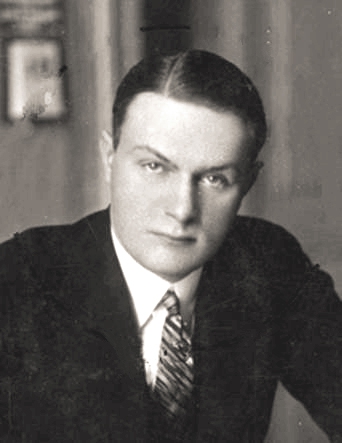The Third Reich’s attack on France in May 1940 and the rapid capitulation of Paris in June of that year were crucial to the fate of many refugees throughout Western Europe. Polish Jews were particularly affected by German aggression in those countries. In the face of escalating anti-Jewish action, the Polish representation in France undertook numerous relief efforts. These were coordinated by Stanisław Zabiełło, the unofficial representative of the Polish state to the Vichy government and his associates.
When, as a result of the German aggression, France was divided into two parts – the occupied zone and the Free Zone under the rule of the Vichy state collaborating with the Third Reich – the problem of the form under which the Polish representation was to operate in Vichy, was discussed. As the operation of any diplomatic post was out of the question due to German protests, the Polish Government entrusted the mission of building a Polish representation in Vichy France to the experienced diplomat and Sovietologist Stanisław Zabiełło (1902-1970). He had the right to choose the overt or, if necessary, secret method of operation.
It soon became clear that the only Polish institution that could protect Polish interests in France became the Polish Offices, or quasi-consulates. They had limited legal and administrative powers. Zabiełło served as director general of the Polish Offices in France under the Vichy government.
One of the first German orders aimed at persecuting Polish citizens, without distinction of nationality, was to conduct a census of foreigners in the occupation zone. Polish citizens were immediately divided by the Germans into Poles and Jews. Some of those considered suspicious were immediately sent to internment camps or to concentration camps, others were sent to work in the Third Reich. It was no different with the census in the Free Zone, although the determination of the French authorities during the census campaign was far less. Zabiello explained as late as May 1940: “Indeed, the French authorities tried to carry out a registration of foreign Jews in 1940, but this action never took the form of a general survey, but was only indicative, carried out in terms of individual prefectures. It was linked to the implementation of the decree of the time to concentrate Jews in special camps. This decree was only partially and very inconsistently implemented. Each prefecture interpreted it in its own way. Hence, in the camps there were partly foreign Jews who had no means of their own, and partly even rich Jews on the basis of the free discretion of the individual administrative authorities.” He continued to explain that the Polish agents were not involved in the census action and were not asked to provide lists distinguishing between Jews and Poles. This matter must have been exposed because some Jewish circles in France, who were very distrustful of the pre-war Polish authorities, wrongly accused the Polish side of active participation in the census plot.
Zabiełło also drew attention to the attitude of French society towards foreigners in his autumn 1940 reports. He believed that a large part of it held rather radical anti-Semitic views. He also observed that the presence of many Polish Jews in France (100,000 in the Paris region) caused many French people to treat the entire Polish refugees wrongly as Jewish, which had an adverse effect on the general perception of the Polish refugee masses in France.
The political and social problems were compounded by difficulties resulting from the hasty evacuation from the coastal areas (Toulouse, Marseille) by the then still active Polish consular services, which undermined the confidence of the French authorities in the Polish representation. Several thousand false passports were issued, mainly to Jews fleeing from the Germans, which enabled them to get out of France by sea. These activities were carried out by the Polish consuls on their own, in consultation with the consulates of other countries.
The Polish officials of the Offices also faced major challenges. When the escapes of Polish Jews from the occupied zone to France began in 1940, Vichy Zabiełło did not hesitate to issue a risky order to forge identity cards and issue fictitious certificates of so-called Aryanness to Polish citizens of Jewish origin. The offices also dealt with the day-to-day bureaucratic business – issuing food ration cards, documents to obtain passes authorising free movement.
In his memoirs, Zabiełło particularly distinguished two people who, in his opinion, performed outstanding service in the campaign to help Jews until 1942: Czesław Bobrowski and Aleksander Mniszek. The former had been consul in Prague in the 1920s and then worked for the Ministry of Agriculture. During the war, he became an inspector of the Society for the Protection of Poles in France. This was an organisation based on the Polish Red Cross, which had been banned by the Germans through their influence in France. The second person mentioned by Zabiełło was the first secretary of the Polish embassy in Paris. Both helped the Jews – Bobrowski by smuggling them across the green border to Switzerland, and Mniszek by obtaining visas for them, including fake documents obtained from the Brazilian Embassy.





